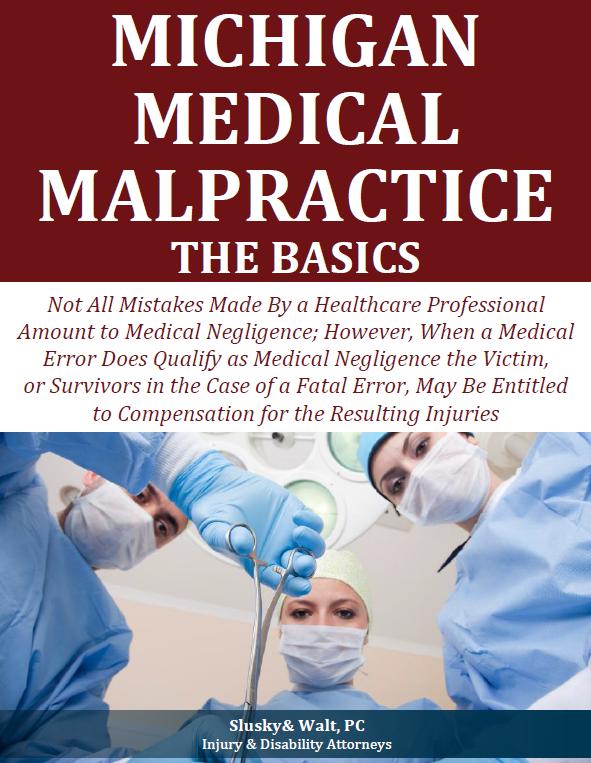Doctors, and other healthcare professionals, are human, just like the rest of us. As such, they make mistakes just like the rest of us. Sometimes those mistakes are relatively harmless; however, in other cases a medical error can amount to medical negligence and may cause serious, even fatal, injuries to a patient. When that is the case, the patient, or surviving family members, may have the basis of a medical malpractice lawsuit. Because of the complex nature of medical negligence cases it is always best to consult with an experienced Michigan medical malpractice attorney immediately if you suspect that you are the victim of medical negligence.
Medical negligence is defined as “professional negligence by act or omission by a health care provider in which the treatment provided falls below the accepted standard of practice in the medical community and causes injury or death to the patient, with most cases involving medical error.” Common examples of medical negligence include:
- Misdiagnosis
- Failure to diagnose a condition
- Delay in treatment
- Surgical error
- Anesthetic error
- Prescription medication errors
As a general rule, if you received care from a healthcare professional and that care resulted in injury, caused your condition to worsen, caused unnecessary or unexpected complications, or required additional medical treatment, you may be the victim of medical negligence. Medical negligence is not limited to physicians, as any licensed health care professional can be held responsible for negligence, including dentists, nursing homes, hospitals, nurses, and pharmacists.
If you believe you are the victim of medical negligence it is crucial that you consult with an experienced medical malpractice attorney immediately. In Michigan, the professional malpractice statute of limitations is two years, meaning your lawsuit may be barred if you do not commence legal action before the end of the applicable statute of limitations. According to the law, actions must be filed within the two year statute of limitations period OR within six months of discovery, up to a maximum of six years following the date of the act or omission that brought about the injury. If the negligence was not immediately recognizable though, the “discovery rule” may provide additional time after the injury is discovered to proceed with legal action. Furthermore, if the child was a minor, there are yet more laws in place to protect their right to suit.
If you need additional information, or have specific questions or concerns, contact an experienced Michigan malpractice attorney as soon as possible.







 When we visit a doctor or other healthcare provider we expect to leave feeling better, or at least with a treatment plan that will address the injury or illness that brought us to the office. In most cases that is precisely what occurs; however, sometimes a medical error is committed and a patient is actually harmed by the care the patient received from a doctor or other healthcare provider. When that happens the victim may be entitled to compensation for his or her injuries through a medical malpractice lawsuit. If you believe you are the victim of a medical error it is very important that you do not talk to the doctor’s (or other defendant’s) insurance company until you have first consulted with an experienced Michigan medical malpractice attorney.
When we visit a doctor or other healthcare provider we expect to leave feeling better, or at least with a treatment plan that will address the injury or illness that brought us to the office. In most cases that is precisely what occurs; however, sometimes a medical error is committed and a patient is actually harmed by the care the patient received from a doctor or other healthcare provider. When that happens the victim may be entitled to compensation for his or her injuries through a medical malpractice lawsuit. If you believe you are the victim of a medical error it is very important that you do not talk to the doctor’s (or other defendant’s) insurance company until you have first consulted with an experienced Michigan medical malpractice attorney.